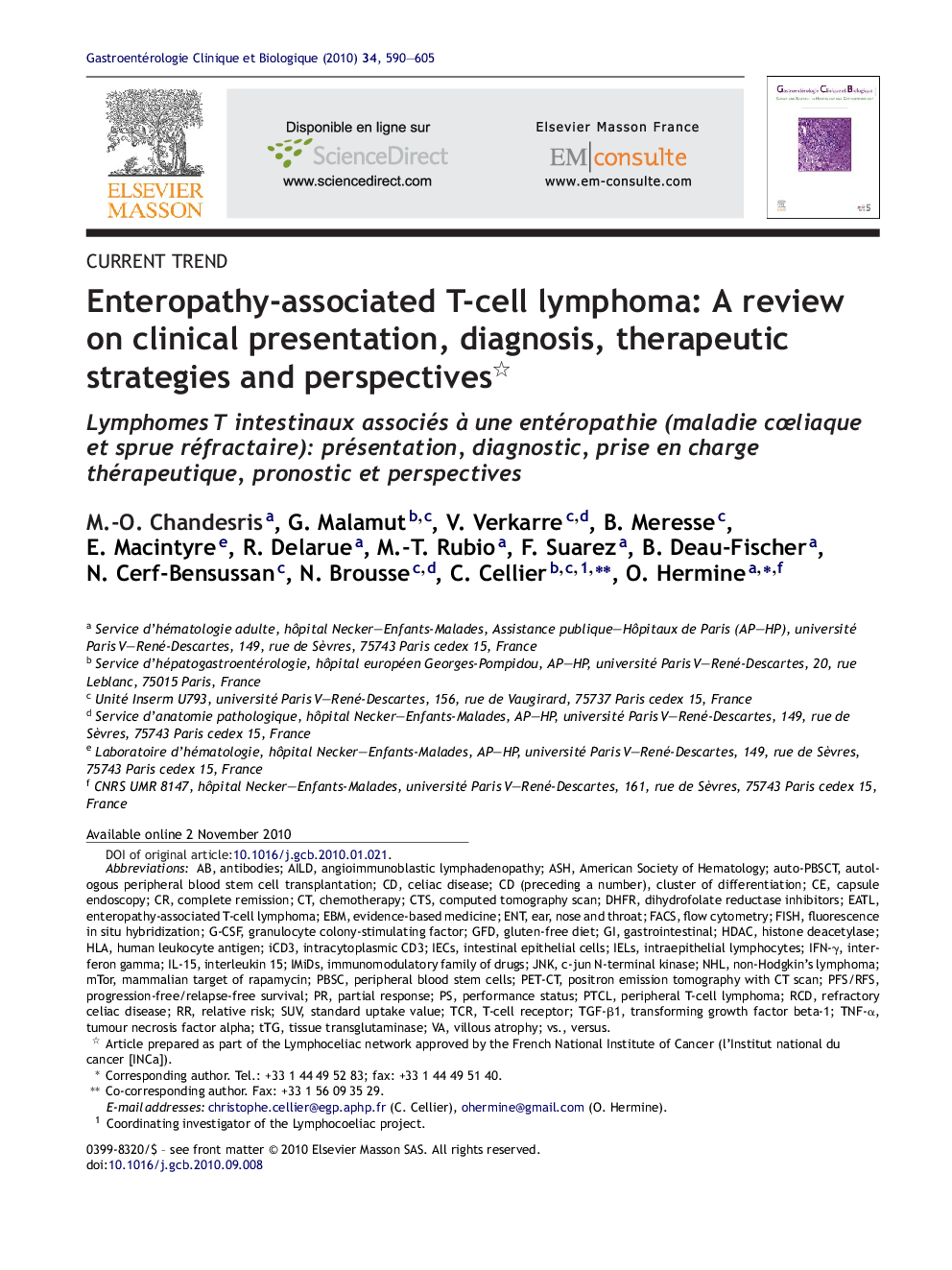| کد مقاله | کد نشریه | سال انتشار | مقاله انگلیسی | نسخه تمام متن |
|---|---|---|---|---|
| 3290143 | 1209678 | 2010 | 16 صفحه PDF | دانلود رایگان |

SummaryIntroductionEnteropathy-associated T-cell lymphoma (EATL) is a rare complication of celiac disease (<1% of lymphomas) and has a poor prognosis.MethodsInternational literature review with PubMed search (up to January 2009) of pathophysiological, clinical and therapeutic data.ResultsEATL is found in patients with a mean age of 59 years, often with a complication that signals its diagnosis. Refractory celiac disease (RCD), equivalent to low-grade intraepithelial T-cell lymphoma, could be an intermediary between celiac disease and high-grade invasive T-cell lymphoma. The median survival is 7 months, with no significant difference between stages; the cumulative 5-year survival is less than 20%. The poor prognosis is determined by disease that has often spread before it is diagnosed (50%), multifocal involvement of the small bowel (50%), poor general health status and undernutrition, and recurrence of complications (infections, perforations, gastrointestinal haemorrhages, occlusions), thus delaying the chemotherapy and contributing to frequent chemotherapy resistance. There is currently no effective and consensual treatment: preventive surgery for complications is controversial, and the results of chemotherapy are disappointing. The classic CHOP protocol (combination of doxorubicin–cyclophosphamide–vincristine–prednisone) does not have satisfactory results and survival remains poor, especially in patients with underlying RCD. High-dose chemotherapy with autotransplantion seems to only improve the prognosis in localised forms. Allogeneic bone marrow transplantation was not evaluated. In all, 1/3 of patients, being unfit for treatment, die before 3 months and half of treated patients stop chemotherapy prematurely due to inefficacy, intolerance and/or complications.ConclusionImprovement of the prognosis requires collaboration in order to compose a national cohort, to evaluate new diagnostic and therapeutic strategies and to define prognostic factors.
Journal: Gastroentérologie Clinique et Biologique - Volume 34, Issue 11, November 2010, Pages 590–605